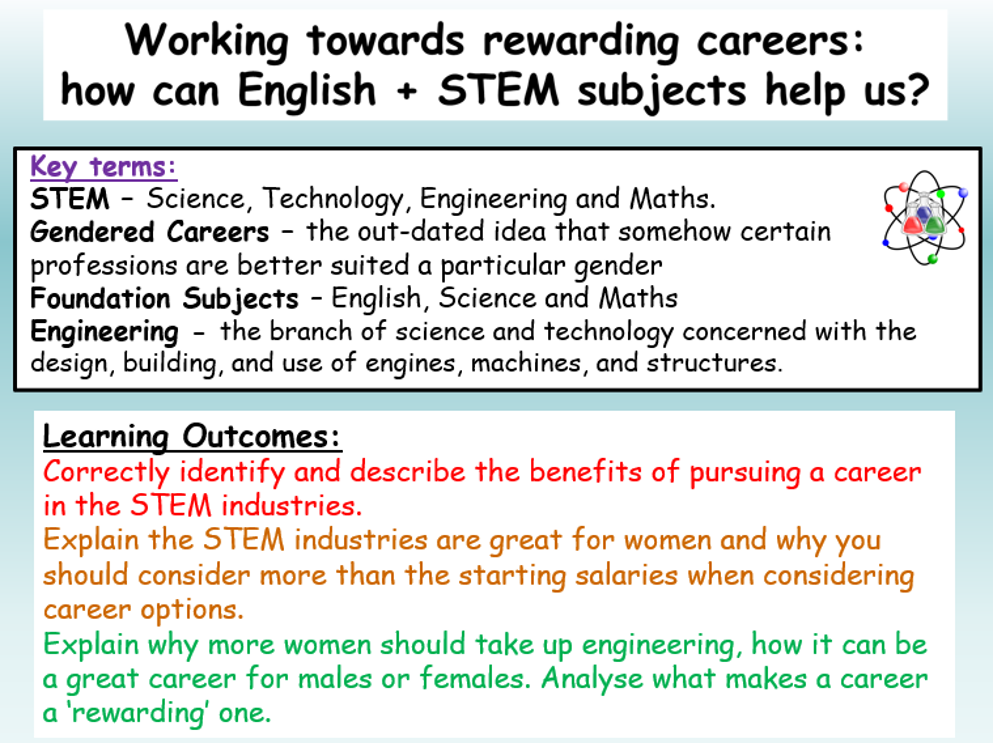

It should be an entrenched belief, not an exercise in box ticking," Dr. "It is also crucial that men advocate for women in the STEM workforce by actively supporting gender equity and promoting diversity and inclusion. Increasing work flexibility would go a long way towards encouraging women to pursue and continue working in STEM careers, the report says, although companies should avoid creating a gender divide where only women are expected to take advantage of flexible work arrangements. Inflexible work hours and a failure among many employers to acknowledge that the burden of unpaid care work for children and older parents still falls disproportionately on women is another major obstacle. The feedback from women who took part in the think tanks suggests that STEM careers are no longer considered "nerdy" or "unpopular," but they remain difficult environments for women to thrive in.Īn unsupportive-even hostile- work environment was named as the main reason women left jobs in STEM. In Australia, only 16% of the STEM skilled workforce are women while 90% of women with a STEM qualification work in non-STEM related fields, according to the Australian Academy of Science.

"These high-performing companies not only had more women on their staff they also had a greater gender mix in their senior leadership." According to a recent study of 1000 companies worldwide, those in the top 25% for gender diversity were found to be 21% more likely to be more profitable and 27% more likely to be more creative," Dr. "Diversity is not just an ethical concern or a box to tick.

Florence Gabriel, says diversity is essential for business success in the modern world.

Inequitable language in the workplace and media, reinforcing gendered stereotypes, including emphasizing "masculine" technical skills over "feminine" soft skills.Unconscious bias perpetuating gender stereotypes in many workplaces, including the misplaced belief that women (especially mothers) have different skill sets to men.Entrenched, pervasive attitudes-in the workplace, community and within families-that associate STEM careers with men and not women.An unsupportive or hostile work culture.The South Australian Academy for Gender Equity in STEM (SAAGES) report details a lengthy list of obstacles that women and non-binary people face in the STEM workforce.
STEM CAREERS SERIES
The report includes feedback and recommendations from 75 professionals and students working in or interested in the sector, who have participated in a series of think tanks over the past 12 months. That's the finding from a new report released by the University of South Australia today.


 0 kommentar(er)
0 kommentar(er)
